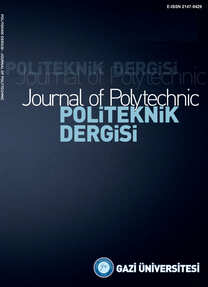Uçucu Kül Tür ve Miktarının Çimento Mekanik
Özelliklerine Etkisi
Bu araştırmanın amacı farklı sınıflardaki uçucu küllerin ve ikame miktarlarının çimento harçlarının basınç eğilme dayanımı ve birim alırlık üzerine olan etkilerini araştırmaktır. Bu amaçla, Çayırhan termik santralinden temin edilen F sınıfı uçucu kül ve Orhaneli termik santralinden temin edilen C sınıfı uçucu kül çimento numunelerinin hazırlanmasında kullanılmıştır. Numuneler hazırlanırken karışım içerisinde çimento ile %0, %5, %10, %15 ve %20 oranlarında Çayırhan ve Orhaneli termik santrallerinin uçucu külleri ikame edilerek, her bir karışım için 3 adet 40x40x160 mm boyutlarında prizma örnekleri hazırlanmıştır. Her bir grup için karışımda kullanılacak su miktarı ASTM C230. C109 ve C1437 standartlarında belirtilen akma çapına göre akma tablası deneyi gerçekleştirilerek belirlenmiştir. Numuneler üzerinde birim ağırlık, eğilmede çekme ve basınç dayanımı deneyleri gerçekleştirilmiştir. Sonuçlar istatistiksel analizlere tabi tutularak değerlendirilmiştir. Sonuç olarak, C sınıfı uçucu kül ikameli çimento harçlarının dayanım değerleri, F sınıfı uçucu küllere göre daha düşük çıkmıştır. C sınıfı uçucu kül ikame miktarı arttıkça basınç dayanımı değerleri azalmıştır. Ancak bu azalmaya rağmen uçucu kül ikameli çimento harçlarının basınç dayanımlarının standart değerler arasında olduğu belirlenmiştir.
The Effect of Type and Amount of Fly Ash on the Mechanical Properties of Cement
The aim of this research is to study the effects of different classes of fly ash and their substitution amounts oncompressive strength, bending strength and unit weight of cement mortars. F class fly ash which is procured from Çayırhanthermal plant and C class fly ash which is procured from Orhaneli thermal plant are used in this study. In preparation of thespecimens cement in the mixture is substituted with fly ashes from Çayırhan and Orhaneli thermal plants in 0 %, 5 %, 10 %, 15% and 20 % ratios, then for each mixture 3 prism specimens having 40x40x160 mm dimensions are prepared. The amount of thewater used for each group of mixture is determined by realizing flow table test according to the flow diameter specified in ASTMC230, C109 and C1437 standards. Unit weight, bending strength and compressive strength experiments are performed on thespecimens. The results are evaluated with statistical analysis.As a result, strength values of cement mortars with C class fly ash substitution are found to be smaller than those ofcement mortars with F class fly ash substitution. With the increase of C class fly ash substitution ratio the compressive strengthfigures decline. However, in spite of this decrease it is found that the compressive strengths of cement mortars with fly ashsubstitution are still between standard values
